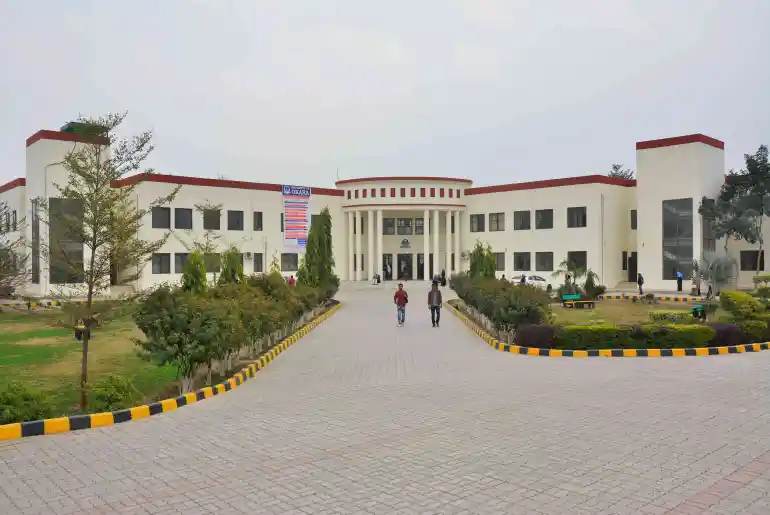Pakistan’s education system has undergone major changes in recent years, with a renewed emphasis on science and technology education. As a result, there has been a rise in the number of students opting for degrees in STEM (Science, Technology, Engineering, Mathematics) fields, and particularly in physics. The BS in Computational Physics is a relatively new degree program in Pakistan that is starting to gain popularity among students who have completed their ICS and FSc pre-engineering.
In this blog, we will discuss why a BS in Computational Physics is the right choice for Pakistani students and what makes it an attractive option in today’s job market.
Admission Requirements for BS Computational Physics
To be eligible for a BS degree in Computational Physics in Pakistan, you need to meet the following criteria:
- You must have completed your F.Sc (Pre-engineering) / A Level / ICS / DAE (with Physics Calculus, Linear Algebra) or equivalent.
- You must have studied Physics and Mathematics and secured a minimum of 50% marks.
This Ultimate Guide to BS in Computational Physics in Pakistan is a part on the series of articles on the best degrees after ICS. Read our full blog here.
Best Degrees after ICS in Pakistan
Universities for BS Computational Physics in Pakistan
In Pakistan there are several prestigious universities offering a BS degree in Computational Physics. Here is a list of all universities offering a BS degree in Computational Physics.
| University | City | Degree | Admissions |
|---|---|---|---|
| Government College Women University | Faisalabad | BS , 4 Years | July - August |
| University Of The Punjab | Lahore | BS , 4 Years | July - August |
| University Of Okara | Okara | BS , 4 Years | July - August |
| Government College Women University | Sialkot | BS , 4 Years | July - August |
Courses for BS Computational Physics
Your journey in Computational Physics will cover a wide range of subjects. Here’s a glimpse of some of the core subjects in the program:
- General Physics II
- Physics Lab I
- Analytical Geometry, Integral Calculus
- Linear Algebra
- Statistics and Probability
- Communication Skills
- General Physics IV
- Electronics
- Physics Lab III
- Electronics Lab
- Computer Programming
- Islamic Studies
- Waves and Optics
- Digital Electronics
- Physics Lab V
- Scientific Computation I
- Numerical Analysis
- Mathematical Method II
- Solid State Physics
- Applied Nuclear and Particle Physics
- Computational Physics Simulations II
- Computational Physics Simulations Lab II
- Philosophy of Science

Recommended Books for BS Computational Physics
Here are some of the best books to kickstart your journey in Computational Physics:
- Computational Physics by Mark Newman
- Introduction to Percolation Theory by D Stauffer
- Equilibrium Statistical Physics by M Plischke and B Bergersen
- Computational Physics (Essentials of Physics) 2nd by Darren Walker
- Computational Physics 2nd by Giordano
- Computer Simulation of Liquids 2nd by Michael P. Allen
- Engineering Physics by Shatendra Sharma
- Introduction To Modern Physics 2nd Vol. 1 by R.B.singh
- Introduction to Linear Algebra 5th Edition by Gilbert Strang
Read this blog to understand the scope of BS computational physics.
Scope Of Computational Physics In Pakistan
Expected Salary after BS in Computational Physics
A BS in Computational Physics can lead to a rewarding salary. In Pakistan, the starting salary for a Computational Physicist is typically between PKR 40,000 – 60,000 per month.
With experience, this can increase significantly, making it a lucrative career choice.
International Scholarships and Research Opportunities

Several international organizations offer scholarships and research opportunities to students pursuing a BS in Computational Physics. These organizations include the Society for Industrial and Applied Mathematics (SIAM), the American Physical Society (APS), and the International Union of Pure and Applied Physics (IUPAP). These bodies offer scholarships based on academic merit and potential to contribute to the field.
Where Can You Find These Scholarships?
There are several international institutions offering scholarships to Pakistani students in the field of Computational Physics. Here are some examples:
- ICTP: The International Centre for Theoretical Physics fosters the growth and sustainability of physics and offers support for student grants and fellowships.
- CERN: This European research organization provides access to postdoctoral research fellowships, particularly in computing, accelerator, and particle physics.
How Can You Apply?
Each scholarship has its own application process. Generally, you’ll need to:
- Check the eligibility criteria.
- Prepare necessary documents (academic transcripts, recommendation letters, etc.).
- Write a compelling statement of purpose or research proposal.
- Submit your application before the deadline.
A BS in Computational Physics is an excellent choice for Pakistani students who want to pursue a career in science and technology. The degree provides students with hands-on experience with cutting-edge technologies, interdisciplinary knowledge, and a wide range of career opportunities. Pakistani students who have completed their ICS and FSc pre-engineering should consider this degree program as an attractive option in today’s job market. Pursuing a degree in Computational Physics can lead to exciting, challenging, and high-paying opportunities both within Pakistan and abroad.



